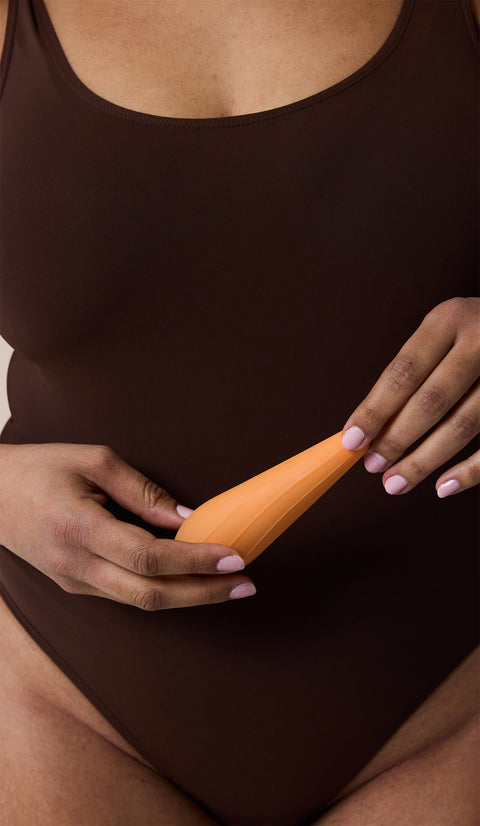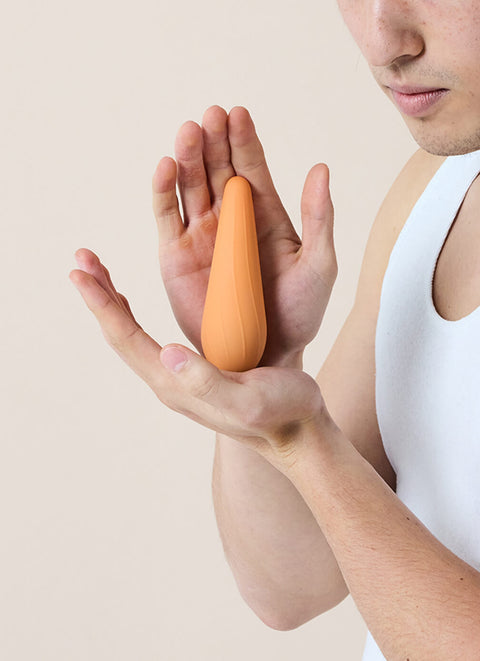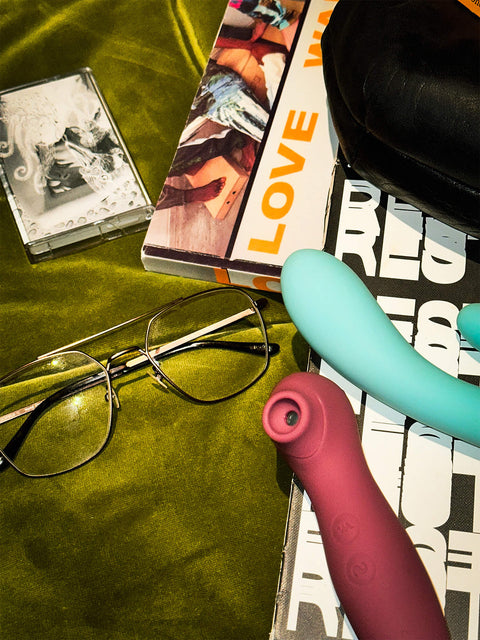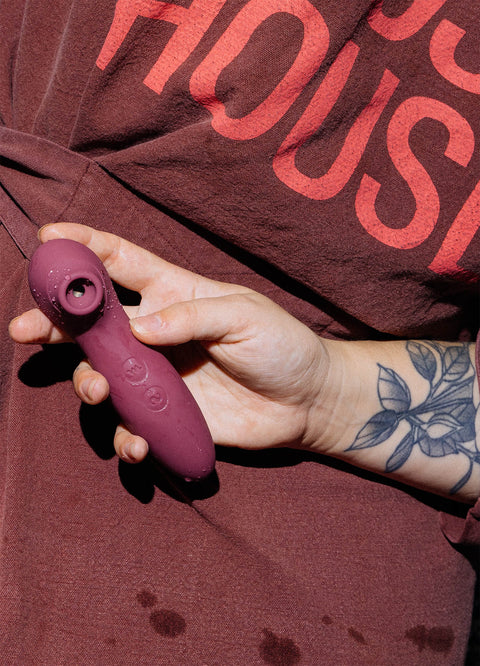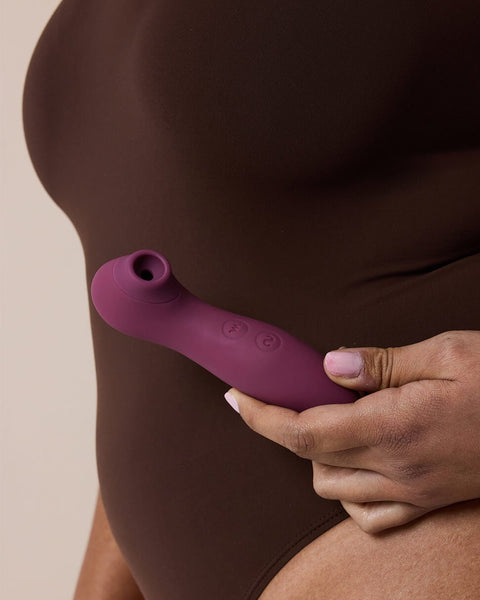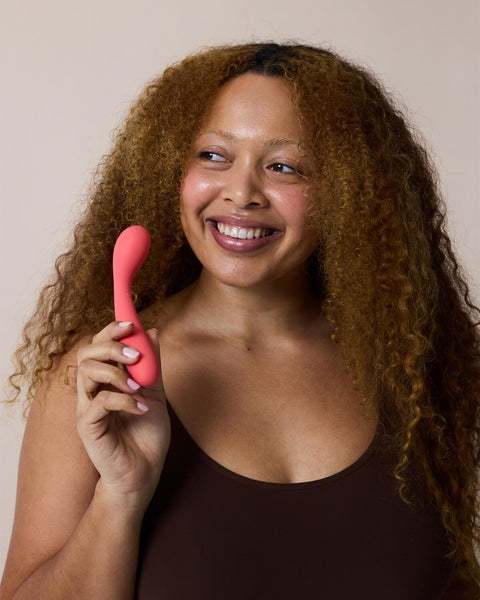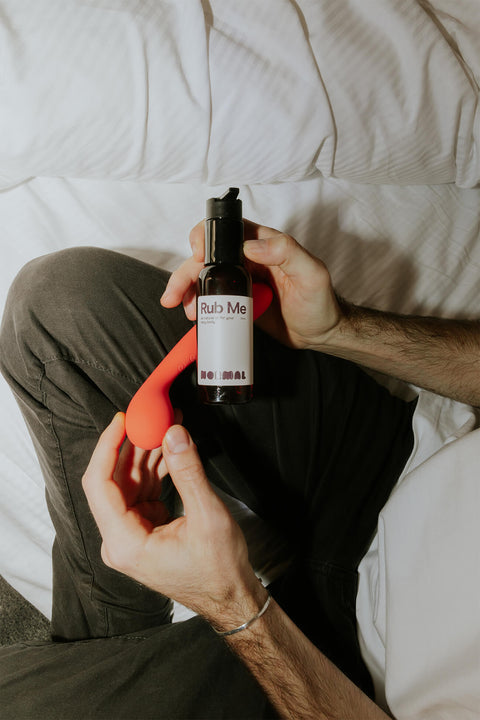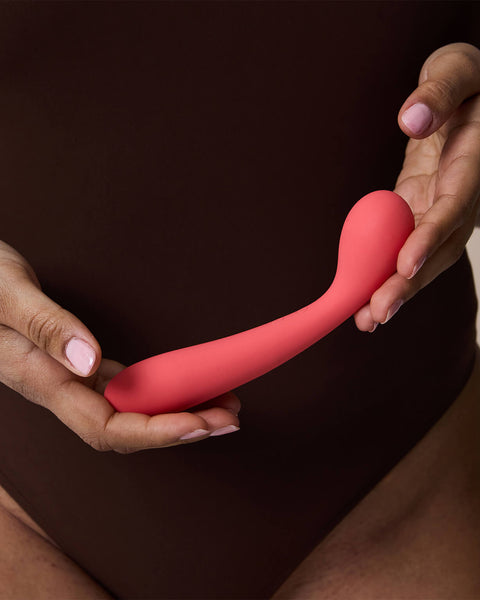The thought of a lover getting up close and personal with your genitals can be as intimidating as it is exciting.
It’s exciting because it means you’re about to get intimate with someone you’re really hot for—but it’s also intimidating because that person is about to learn a whole lot about how your genitals look, smell, and taste.
Heaps of people worry about their level of cleanliness before sex, and it’s totally normal to wonder about how you smell and taste as well.
If you think your pre-sex hygiene routine could use a little work, or if you’re curious to know whether you smell good down there, we’re about to tell you everything you need to know.
What are my genitals actually supposed to taste and smell like?
If we took Gwyneth Paltrow’s word for it, we’re all supposed to smell like geranium, bergamot, and cedar. At least, that’s what her recently-released candle titled, ‘This Smells Like My Vagina’, is supposed to smell like.
Fortunately, we don’t have to take Gwyneth’s word for it—and we shouldn’t expect to smell like a designer candle, either.
“Genital taste and smell comes up a lot [with my clients],” says sex coach, Georgia Grace. “I often hear how self-conscious people are about how their genitals taste and smell.
“But remember, genitals aren’t meant to smell like perfume.”
Everyone’s genitals smell and taste different—there’s no single, ideal scent or taste for a person to have.
Given that our genitals are usually hidden away under our clothes for most of the day, sweat and pheromones can build up around them giving them a musky scent; and you might also notice that you or your partner smell a bit sweaty down there if you’ve been warm throughout the day or just finished a workout.
Vulvas, in particular, can smell and taste different depending on whether someone is menstruating or not, or whether they’re turned on.
In general, it’s normal to smell and taste a little musky, sour, salty, acidic, or bitter.
But, Georgia says, “If you do notice a serious change in the way your genitals smell or taste, or if there’s an unusual odor, it’s always best to see a doctor.” Sudden changes in odor, or very strong odors, can be indicative of an STI or an infection like bacterial vaginosis.
What’s the go with hair down there?
“I do get a few questions about body hair down there,” says Georgia. “My response is always the same: your body, your choice.
“You can’t really ask anyone to trim, shape, or remove hair; and during sex, it’s incredibly unsexy to make a judgement about someone’s body.”
Whether or not someone has pubic hair says nothing about their personal hygiene or grooming standards.
Some people enjoy having a lot of hair, others like to remove it, and many people keep it trimmed and somewhere in between. “Hair does change the experience of giving and receiving oral sex,” Georgia adds, “So it is a practicality as well as something that can feel very personal and political too.”
And if you want to ask your partner to change their pubic hair? “Be very comfortable with getting a no, and celebrating it,” says Georgia.
“This should never be something where shame or pressure is involved. But also, who knows—they might be very happy to accommodate in some way, especially for enhanced sensation! But it's their body and their choice, and it's on you to make sure they feel great no matter how the discussion ends.”
Can we change our scent and taste?
So, we can change the way we smell and taste—to a degree.
Simple things like changing underwear and clothes daily, showering regularly and before sex (more on that in a minute), and wearing clothing and underwear made of natural fibres can make a huge difference.
Natural fibres like cotton and bamboo allow far more airflow around your genitals than polyester, for example, so this can reduce a lot of ‘scent build-up’ throughout the day.
Anecdotally, some people say that what you eat and drink can change the way your genitals will taste.
We couldn’t find much scientific proof to back this up, but we did read this article by sex blogger Tayannah King which suggested that any food that makes our sweat or pee smell different can also make our genitals smell different, and we’re inclined to say that makes sense.
In general though, we’d recommend aiming for a moderate, healthy diet every day and drinking water regularly instead of reaching for the pineapple chunks and cranberry juice before sex.
There are also a lot of washes, soaps, douches, and scented products that claim to make our genitals smell and taste better, but our take on these is that they’re unnecessary and can do more harm than good.
Washing our genitals too often, with harsh soaps, or with scented products can strip good bacteria from our skin and offset our delicate pH balance, which can lead to infections—and infections, ironically enough, can make our genitals smell quite bad.
Skip the vaginal steaming and ball deodorant, and go for a good old-fashioned wash instead.
Here’s how you do it.
- Make it regular. It goes without saying that showering or bathing regularly is always a good idea. If you’re planning on getting some action, it’s good manners to freshen up beforehand—a thorough, full-body scrub will go a long way.
- Skip the fancy soaps. Avoid anything scented or fragranced. “A shower using a pH-balanced, genital-safe wash for external use only will do the trick,” says Georgia.
- Stick to the outside only. Gently apply warm water and a genital-safe soap to the exterior of your genitals: your vulva, clitoris, and outer labia; or your balls and penis.If you have a foreskin, gently pull it back and allow warm water to run over the head of the penis. You should never put soap inside your body, as it can cause infections: your vagina is naturally self-cleaning, and your urethra (pee hole) doesn’t need it. Clean around the butt area, including between the cheeks; and if you choose to douche or use an enema, use warm water only—no soap!
- Dry off. It might sound obvious, but if you don't towel off properly, water can collect between the folds of your skin and cause chafing and rashes. Use a clean, fresh towel to thoroughly dry off.
- Perfume is optional. If you’re into using perfume or cologne, go for it—but never use fragrances or deodorants on your genitals. These chemicals are fine for our skin, but can cause infections and unpleasant reactions on our genitals. Some people are particularly sensitive to fragrance and chemicals, so if that’s you, you might want to skip using fabric softener on any clothes that come into contact with your genitals.
To learn more about the foundations of great sex from acclaimed sex coach Georgia Grace, check out NORMAL's online video masterclass The Modern Guide to Sex.




